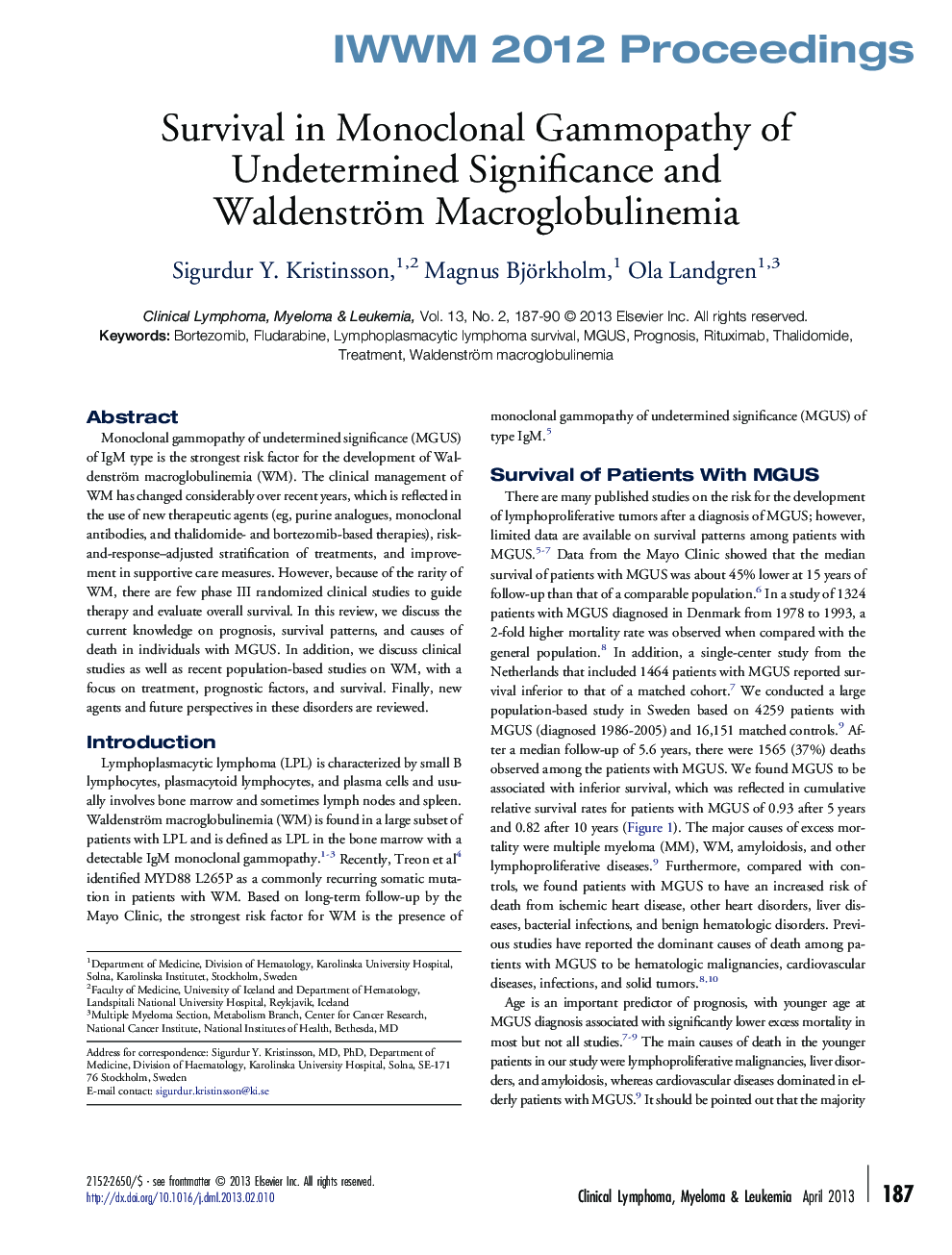| Article ID | Journal | Published Year | Pages | File Type |
|---|---|---|---|---|
| 2754590 | Clinical Lymphoma Myeloma and Leukemia | 2013 | 4 Pages |
Monoclonal gammopathy of undetermined significance (MGUS) of IgM type is the strongest risk factor for the development of Waldenström macroglobulinemia (WM). The clinical management of WM has changed considerably over recent years, which is reflected in the use of new therapeutic agents (eg, purine analogues, monoclonal antibodies, and thalidomide- and bortezomib-based therapies), risk-and-response–adjusted stratification of treatments, and improvement in supportive care measures. However, because of the rarity of WM, there are few phase III randomized clinical studies to guide therapy and evaluate overall survival. In this review, we discuss the current knowledge on prognosis, survival patterns, and causes of death in individuals with MGUS. In addition, we discuss clinical studies as well as recent population-based studies on WM, with a focus on treatment, prognostic factors, and survival. Finally, new agents and future perspectives in these disorders are reviewed.
